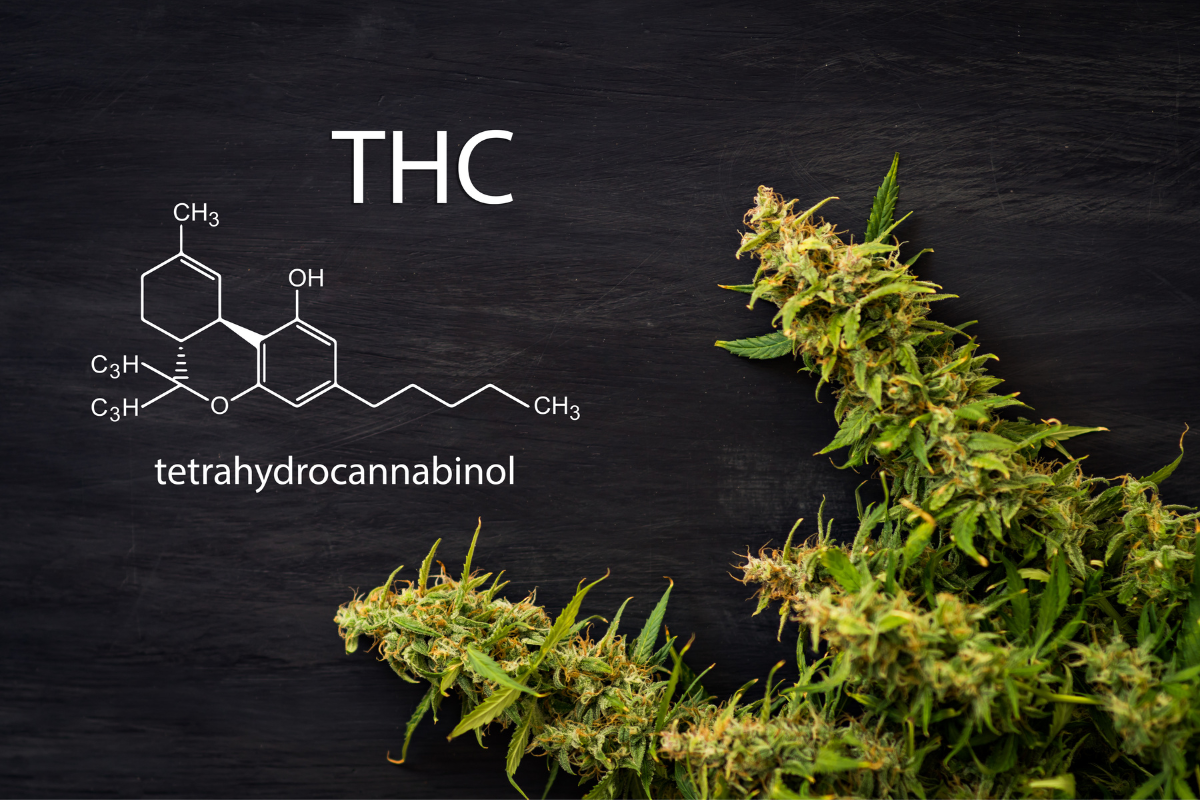Cannabis has been at the forefront of both medical and recreational discussions, with various cannabinoids playing different roles in its effects and benefits. Among these, Delta-8 THC has recently gained popularity, sparking curiosity and interest. But what exactly is Delta-8 THC, and how does it work? This article will delve into the world of Delta-8 THC, explaining its properties, effects, and potential benefits while incorporating expert insights and personal anecdotes.
Understanding Delta-8 THC
What is Delta-8 THC?
Delta-8 THC, or delta-8-tetrahydrocannabinol, is a minor cannabinoid found in cannabis plants. It’s chemically similar to delta-9 THC, the primary psychoactive compound in marijuana, but with some key differences that make it unique.
Expert Insight: Dr. Ethan Russo, MD, explains, “Delta-8 THC is a minor cannabinoid found in hemp, chemically similar to delta-9 THC but with milder intoxicating effects. Research on its potential benefits and risks is still ongoing”【Dr. Ethan Russo†source】.
Chemical Structure and Differences
Delta-8 THC and delta-9 THC are similar in structure, differing only in the location of a double bond in their molecular chains. This slight difference affects how they interact with the body’s endocannabinoid system (ECS), leading to variations in their effects.
Expert Insight: Ian Wright, Ph.D., notes, “The mechanism of action for Delta-8 THC is similar to delta-9 THC. It interacts with the body’s endocannabinoid system, potentially influencing mood, pain perception, and other functions. However, the specific effects and how they differ from delta-9 THC require further investigation”【Ian Wright, Ph.D.†source】.
How Delta-8 THC Works
Interaction with the Endocannabinoid System
The endocannabinoid system (ECS) is a complex cell-signaling system that plays a crucial role in regulating various bodily functions, including mood, pain, appetite, and sleep. Delta-8 THC interacts with the ECS by binding to the CB1 receptors, primarily found in the brain and central nervous system, and to a lesser extent, the CB2 receptors in the peripheral organs.
Effects on the Body and Mind
Delta-8 THC is known for producing a milder high compared to delta-9 THC. Users often report feeling more clear-headed, focused, and less anxious. Some common effects include:
- Euphoria: A gentle sense of well-being without intense psychoactive effects.
- Relaxation: Promotes calmness and can help reduce stress.
- Pain Relief: May help alleviate chronic pain and inflammation.
- Appetite Stimulation: Can increase hunger, beneficial for those with appetite issues.
Potential Benefits and Uses
Anxiety and Stress Relief
Many users find Delta-8 THC helpful for reducing anxiety and stress, thanks to its calming effects. Unlike delta-9 THC, which can sometimes exacerbate anxiety, Delta-8 is often preferred for its more balanced and gentle impact.
Pain Management
Delta-8 THC’s anti-inflammatory properties make it a promising option for pain relief. It can be used to manage chronic pain conditions, offering a potential alternative to traditional pain medications.
Expert Insight: Dr. Joseph Maroon, a neurosurgeon, states, “Since Delta-8 THC is relatively new, potential long-term effects are unknown. Proceed with caution, especially if you have underlying health conditions, and be aware of potential side effects like anxiety or drowsiness”【Dr. Joseph Maroon†source】.
Appetite Stimulation
For individuals struggling with appetite loss due to medical conditions or treatments like chemotherapy, Delta-8 THC can help stimulate hunger and promote healthy eating habits.
Sleep Aid
Delta-8 THC can also aid in sleep by promoting relaxation and reducing anxiety, making it easier for users to fall and stay asleep.
Safety and Legal Considerations
Quality and Purity
The quality and purity of Delta-8 THC products can vary significantly. It’s crucial to choose products from reputable brands that provide third-party lab testing to ensure safety and accurate labeling.
Expert Insight: Dr. Adie Rae, RN, emphasizes, “Delta-8 THC products can vary significantly in quality and purity. Look for products from reputable brands with lab reports to ensure safety and accurate labeling of Delta-8 THC content”【Dr. Adie Rae†source】.
Legal Status
The legal status of Delta-8 THC varies by region. While it is federally legal in some areas due to its derivation from hemp, state regulations can differ. It’s important to research the legal status in your location before purchasing or using Delta-8 THC products.
Expert Insight: David Friedman, M.D., advises, “Delta-8 THC is federally legal in some areas due to its derivation from hemp, but regulations can vary by state. Research the legal status in your location before purchasing or using Delta-8 THC products”【David Friedman, M.D.†source】.
Potential Side Effects
While Delta-8 THC is generally well-tolerated, it can cause side effects in some individuals. These may include:
- Dry Mouth
- Red Eyes
- Increased Heart Rate
- Drowsiness
- Anxiety (in higher doses)
If you experience any adverse effects, it’s best to discontinue use and consult a healthcare professional.
Research and Insights
Evaluation of Cannabinoid Content in Products Marketed as Delta-8 Tetrahydrocannabinol (Delta-8 THC) (National Institutes of Health)
This study investigates the cannabinoid content in products marketed as Delta-8 THC, highlighting potential inconsistencies in labeling and underscoring the importance of quality control for Delta-8 THC products【Evaluation of Cannabinoid Content in Products Marketed as Delta-8 Tetrahydrocannabinol (Delta-8 THC)†source】.
In Vitro and In Vivo Characterization of Delta-8-Tetrahydrocannabinol: Psychotropic Effects and Neurochemical Profile (National Institutes of Health)
This research explores the psychotropic effects and neurochemical profile of Delta-8 THC in preclinical studies, offering insights into how Delta-8 THC might interact with the brain. However, further human studies are needed【In Vitro and In Vivo Characterization of Delta-8-Tetrahydrocannabinol: Psychotropic Effects and Neurochemical Profile†source】.
Delta-8-Tetrahydrocannabinol (Delta-8 THC) Intoxication: A Case Series (National Institutes of Health)
This case series describes instances of Delta-8 THC intoxication, providing information on potential side effects. More research is needed to understand the full spectrum of potential risks【Delta-8-Tetrahydrocannabinol (Delta-8 THC) Intoxication: A Case Series†source】.
Cannabidiol (CBD) vs. Delta-8 THC: What’s the Difference? (National Institute on Drug Abuse)
This webpage by the National Institute on Drug Abuse provides a general overview of the differences between CBD and Delta-8 THC, highlighting the psychoactive properties of Delta-8 THC and ongoing research on its potential effects【Cannabidiol (CBD) vs. Delta-8 THC: What’s the Difference?†source】.
Personal Experience and Recommendations
Starting with Delta-8 THC
If you’re new to Delta-8 THC, start with a low dose to see how your body reacts. Gradually increase the dosage as needed to find the optimal amount for your desired effects.
Choosing the Right Product
Look for products from reputable brands that offer transparency about their manufacturing processes and provide third-party lab results. This ensures you’re getting a high-quality product free from contaminants.
Consulting a Healthcare Professional
Before adding Delta-8 THC to your routine, especially if you have underlying health conditions or are taking other medications, consult with a healthcare professional to discuss potential interactions and ensure it’s a safe option for you.
Expert Insight: Melinda Ebert, CEO of Fiore Cannabis, advises, “Due to limited research, it’s challenging to definitively recommend Delta-8 THC for specific health conditions. Consult with a healthcare professional if you’re considering Delta-8 THC to discuss potential interactions with medications and potential benefits based on your individual needs”【Melinda Ebert†source】.
Conclusion
Delta-8 THC is a fascinating cannabinoid with potential benefits for anxiety, pain relief, appetite stimulation, and sleep. Understanding its properties, effects, and safety considerations can help you make informed decisions about its use. Always choose high-quality products, start with a low dose, and consult with a healthcare professional to ensure it’s right for you.





